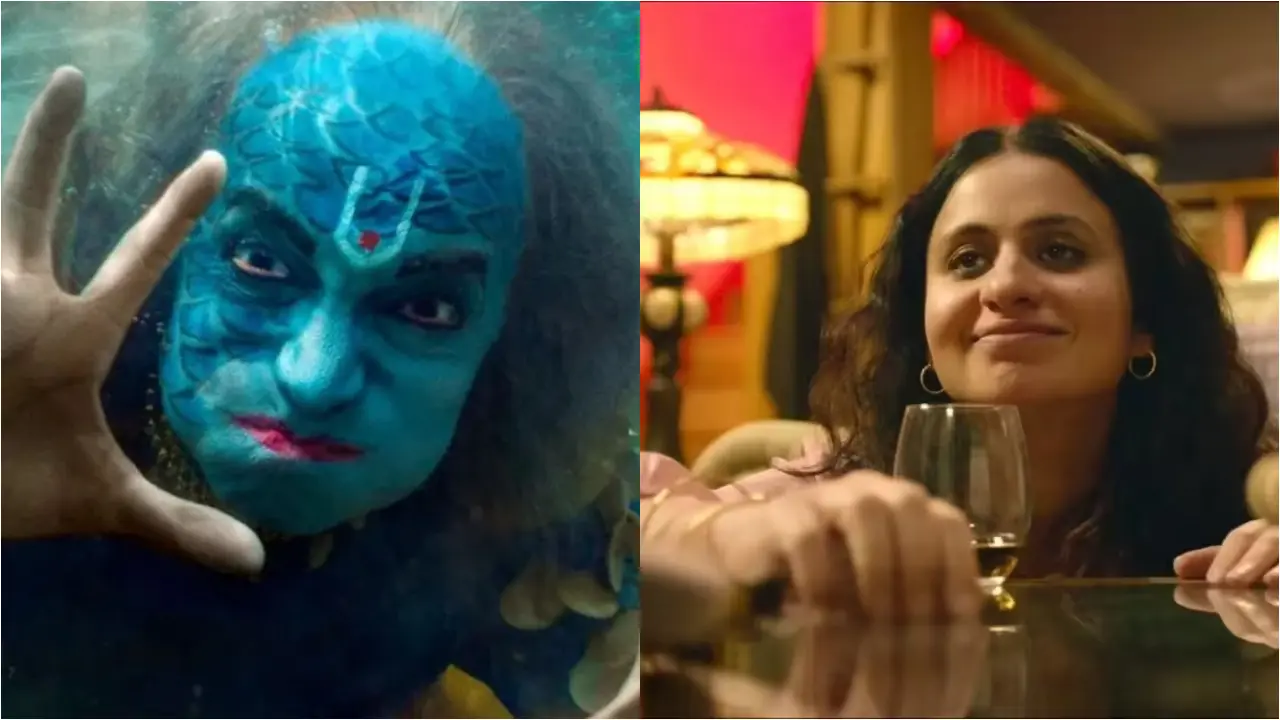
Last month, as Rasika Dugal and Arjun Mathur-starrer Lord Curzon Ki Haveli released, it marked the beginning of a new chapter for Varun Gupta’s MAX Marketing. After a decade of spearheading marketing on some of the biggest hits, including Kalki 2898 AD (2024), Animal (2023), Bhool Bhulaiyaa 2 (2022) and RRR (2022), Gupta turned a presenter with the Anshuman Jha-directorial. Now, a month later, he has another offering in his new role— Dashavatar. The superhit Marathi thriller that released in September has arrived in theatres again, but this time in Malayalam. For the first time in India, a Marathi film has released in Malayalam. Gupta, who calls it an “honest experiment”, says that even though in his research he never found that the Malayalam audience particularly consumes Marathi stories, he knew Dashavatar was a film that it would be drawn to.
Varun on releasing Marathi film for Malayalam audience
“What Malayalam audience consumes is something that’s cerebral, at the same time emotional and deep-rooted in the tradition. All these tick marks were there in Dashavatar. So, it’s not about Marathi to Malayalam, but it’s about the same emotion in different languages. When I saw Dashavatar, I was amazed by the way it`s shot, the storytelling, the scale, canvas and most importantly, the emotion. And because I`ve been fortunate enough to be dealing with all possible industries in India, I realised that the Malayalam audiences are one of those, who are not driven by just star power but great story. Also, the way Dashavatar has been shot on a coastal region in Konkan, same goes for Kerala. So, for me, the similarities between that, between the fact that the stories are absolutely ingrained and emerged in the culture— it talks about play, it talks about an artiste, and things which are global emotions. So, it just came to my mind that while nobody has tried it before, let us be the first one and see where this goes,” he smiles.
Directed by Subodh Khanolkar, Dashavatar stars Dilip Prabhavalkar, Bharat Jadhav and Mahesh Manjrekar in pivotal roles.
On marketing approach for Lord Curzon Ki Haveli
Gupta wants to focus on building a robust system for independent films. Primarily why he decided to turn a presenter. And he believes he is off to a satisfying start.
“Lord Curzon Ki Haveli was a film that`s almost 70 per cent in English and made for a very targeted audience. So what I liked was our targeted approach really worked. In fact, as a studio, my job was to ensure that just because a lot of people don`t come on a Friday—because this is not a film that will be front-loaded with an opening, it’s a film that will grow— it was very important for me to provide the film with good showcasing and good screens in the cities where such kind of audiences would consume like Kolkata, Bangalore, Pune, Hyderabad, Delhi, Mumbai. So while Friday and Saturday a lot of people didn`t come in, we still made sure that the screens in these cities are maintained for the next 10 days, so that the film gets a fair chance,” he explains.
His efforts, Gupta says, have paid off, as “we are already having couple of deals from OTT on table which we are evaluating. So in totality it`s been a great learning experience but definitely not a losing proposition. It`s been a win-win in every aspect.”
Unfair distribution costs
Independent cinema suffers on many counts— from the challenge of finding a producer to believe in the story to getting a distributor, who gets the film a fair chance in the theatres. Having more skin in the game as a presenter, Gupta believes it’s unfair that independent filmmakers are expected to allocate the same budget for distributing their films as those making big-budget films do. This is the problem that needs urgent attention according to the presenter.
“I strongly feel that independent cinema and films that are made with passion but don`t have the luxury of big budgets of release need to be looked at very differently. While I understand that for a cinema hall to run a film, irrespective whether it`s a big film or a small film, the cost is same. But as an industry, we need to come together to provide a consensus because it`s absolutely unfair that a film that is made in Rs 500 crores— and I`m not even going to the ticket price— but the cost of taking that kind of film to the theatres versus the cost of taking a Rs 50 lakh film to the theatre is the same. How is this in any which way a smart business proposition for an industry? So for me, the marketing and the distribution costs for smaller films need to be re-looked at in some manner. The marketeers, the vehicles of marketing and the distributors need to come together, which is what we at Max are trying to do to support good cinema,” he says.







